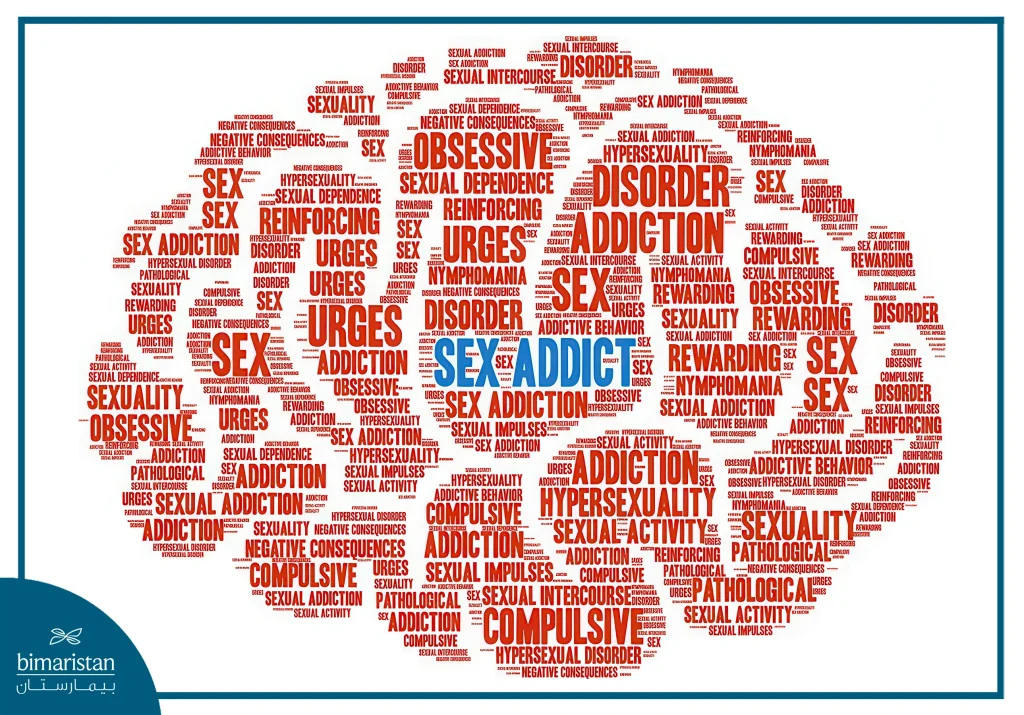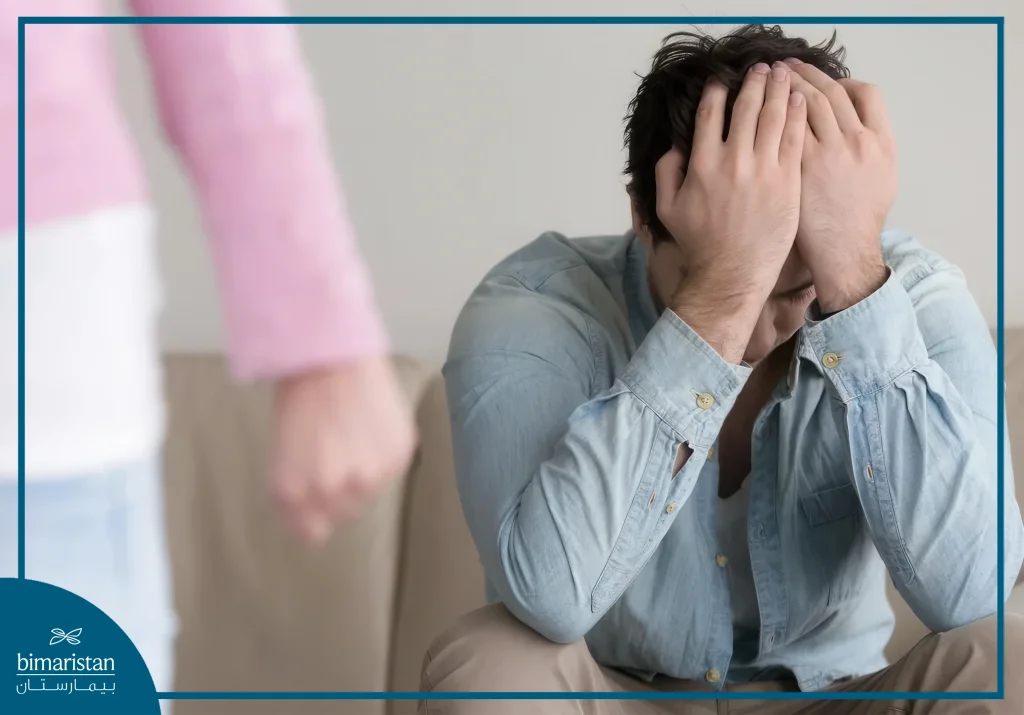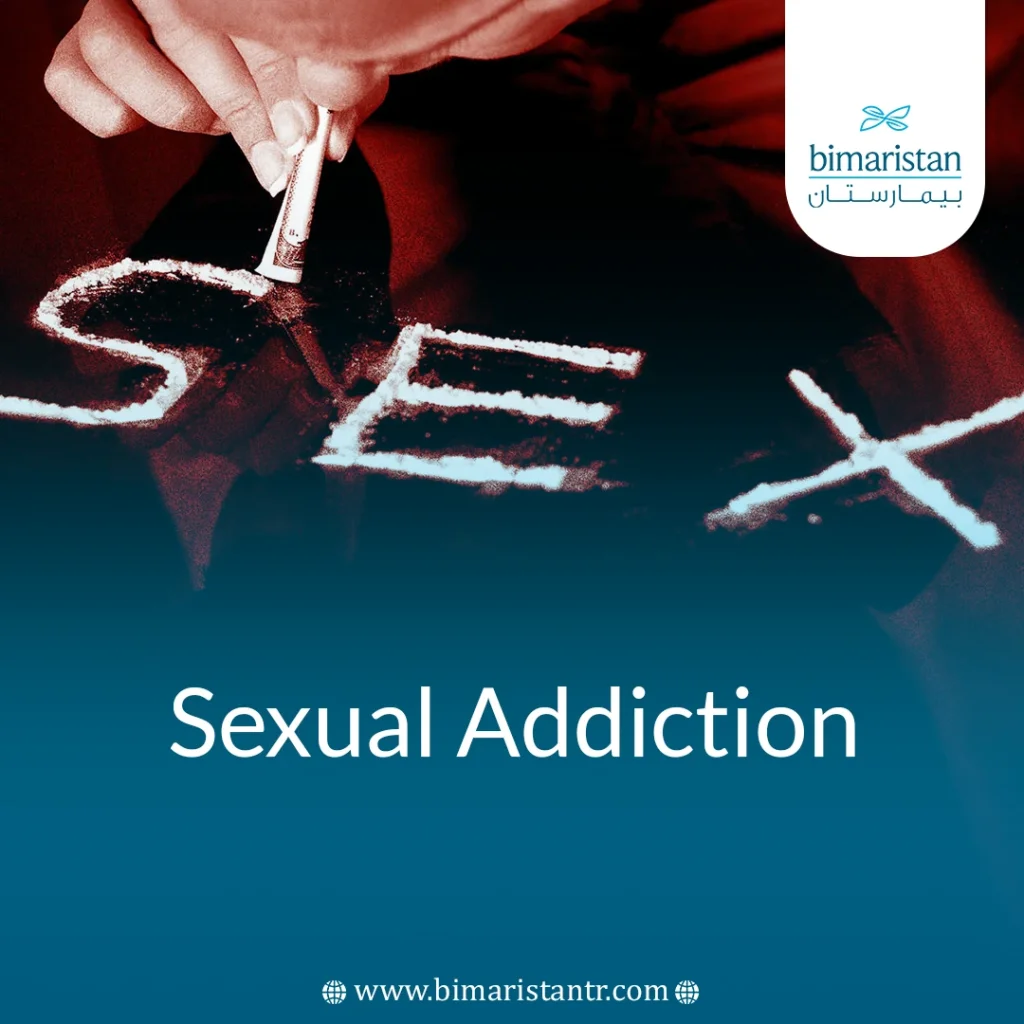The world is going through a wave of addictive disorders, and sexual addiction has emerged as one of the non-drug behavioral addictions, making it complex to deal with in terms of diagnosis and treatment, as it is often associated with anxiety and depression.
The prevalence of sexual addiction is controversial in medical circles regarding its classification and its psychological and biological causes. Statistics indicate that the prevalence of sexual addiction reaches 5% globally, making it imperative for health workers and the medical community to work together to eradicate this type of addiction.
What is sexual addiction?
It is defined as the persistent inability to control intense sexual impulses and desires, which leads to frequent sexual activity that affects well-being, psychosocial functioning and reduces the quality of life, often characterized by compulsive behaviors, great guilt and strained relationships between spouses. People suffering from sexual addiction may find themselves searching for temporary gratification or using sexual relationships as a way to escape from their reality or emotional issues, as the patient starts using pornography and ends up having extramarital affairs.
Some medical experts oppose the term sexual addiction but it is the most common among the general public, and this disorder is known by other names, such as hypersexuality, sexual compulsion, or compulsive sexual behavior disorder (CSBD). This difference and lack of consensus on considering sexual addiction as a medical condition has made it difficult to accurately identify the symptoms and diagnose it.

Causes of sexual addiction and contributing factors
To date, there are no exact causes of addiction, but scientists have identified some contributing factors and possible theories that lead to this disorder, including the following:
- Chemical imbalance in the brain: A chemical imbalance, especially dopamine, can lead to addictive behaviors, or elevated levels of certain neurotransmitters such as norepinephrine, which affects arousal, and serotonin, which regulates mood and impulsivity.
- Sexual control areas of the brain are affected: Sexual behavior is regulated by certain centers in the brain such as the hippocampus, amygdala, hypothalamus, and prefrontal cortex, and these areas are damaged by diseases such as dementia, epilepsy,and bipolar disorder.
- Abuse of drugs: Cocaine and amphetamines, as well as alcohol, which impairs impulse control.
- Side effects of medications: Such as levodopa used to treat Parkinson’s disease.
In addition to the above, there are additional risk factors, as males are more likely to be affected, and the chance of developing sexual addiction increases in the presence of psychiatric disorders such as depression or anxiety, and a history of drug addiction.
Psychosocial factors play an important role in this addiction, as it is often associated with trauma, especially in childhood:
- Traumatic childhood experiences: Symptoms of addiction may emerge as a result of early trauma. Physical or sexual abuse is associated with later sexual addiction, and uncontrolled sexual behaviors may arise as an attempt to compensate for emotional inadequacy.
- Irrational beliefs: False beliefs about sex lead to addiction, and unrealistic expectations of life may generate bad behavior patterns.
- Low self-esteem: Studies have shown that 74% of people with sex addiction suffer from low self-esteem.
- Unhealthy coping mechanisms: Some people use sex as an unhealthy coping mechanism to deal with stress.
Psychological and physical symptoms of sexual addiction
Although there is no explicit definition of sex addiction, there are some psychological and physical characteristics and symptoms that may indicate sexual addiction, as the symptoms of sexual addiction sometimes include health consequences such as unwanted pregnancy or infection with sexually transmitted diseases such as human immunodeficiency virus (HIV), hepatitis B or C, syphilis or gonorrhea, while on the psychological side, the symptoms vary and include:
- Intense and frequent sexual fantasies and desires that are involuntary and difficult to control
- A strong, recurring urge to engage in certain sexual behaviors
- Feeling unable to control these behaviors, despite repeated attempts to stop them
- Negative feelings of guilt, shame, or regret after engaging in these behaviors
- Using sexual behaviors as a way to escape from psychosocial issues such as anxiety, depression, and stress
- Inability to stop engaging in these behaviors despite serious negative consequences, such as injury, transmission of a sexually transmitted infection, or destruction or loss of important relationships
Early warning signs of sexual addiction
There are several warning signs that patients should be aware of before their condition deteriorates, including:
- Excessive preoccupation with sex: The patient finds themselves thinking about sex throughout the day and often finds it difficult to focus on other things.
- Withdrawal from other activities: The patient stops participating in hobbies they used to enjoy in order to engage in sexual activities.
- An escalation of sexual behavior: Like other addictions, this type of addiction is difficult to control and usually worsens over time.
- Multiple sexual partners: A person with this addiction is often unable to commit to one partner and may cheat on their partner.
- Neglecting duties and responsibilities
- Failed attempts to control sexual behavior
- Lack of awareness and mental health issues
How does sexual addiction affect relationships and daily life?
Sexual addiction causes a significant impact on social relationships and daily life, as the patient often lacks the emotional aspect in their daily life, as they are motivated by an unfulfilled psychological desire rather than a desire for communication or closeness, which leads to tension and breakdown in relationships with partners, family members and friends, as this addiction often causes the following:
- Tense relationships: Lack of emotional connection and infidelity lead to trust issues.
- Isolation: The person isolates themselves to hide their addictive behaviors.
- Social stigma: The stigma associated with a person’s sex addiction can affect their social standing.
The negative effects of sexual addiction on marriage and family life
This condition can cause devastation in marital relationships, and one of the most important effects is the erosion of trust, often as a result of the secrecy, betrayal, and deception that accompanies addictive behavior, and intimacy between spouses can be affected as the sex addict focuses on the sexual act rather than the emotional bond, and the emotional openness needed to build a healthy relationship is often difficult. In addition to the above, being in a relationship with a sex addict is psychologically exhausting and the other partner experiences a range of negative emotions such as confusion, anger, and guilt, and another issue called co-dependency emerges, where the partner always tries to fix the addict’s behavior, often to no avail.
Sexual addiction always creates communication issues, as the addict usually hides his behaviors, leading to an atmosphere of secrecy and loss of trust, while the non-addicted partner may find it difficult to express his feelings, especially if he is exposed to what is known as psychological manipulation, which makes him afraid to cause a relapse to his partner or any additional harm, this may lead to suppression of feelings and the accumulation of unresolved conflicts.

Sexual addiction treatment methods
Sex addiction is a complex disorder that requires a multifaceted treatment approach, involving a number of health providers such as a primary care physician, psychiatrist and sex therapist, and it is important for people suffering from this condition to seek medical help, especially if they have thoughts of harming themselves or others, as psychotherapy and pharmacotherapy can be used, and treatment methods for sexual addiction are more effective when treating other mental health conditions or substance abuse as these factors may exacerbate the condition.
In terms of pharmacological treatment, there are no medications specifically approved to treat sexual addiction, but medications that affect the hormones and brain chemistry associated with motivation and behavior may be used, such as the following:
- Antidepressants: Selective serotonin reuptake inhibitors (SSRIs) are the first treatment option for sex addiction.
- Mood stabilizers: Useful in bipolar disorder with sexual addiction.
- Anxiety medications: If this addiction is caused by anxiety.
- Anti-androgens: Target male sex hormones, used when sexual behaviors are dangerous to others.
- Antipsychotics
Psychotherapy for sexual addiction includes a range of methods that help the patient understand and control the factors that cause addiction:
- Acceptance and Commitment Therapy (ACT): Focused on helping people stop denying, avoiding, or struggling with their inner issues, ACT works on accepting feelings and thoughts in order to manage intense feelings of shame.
- Motivational Enhancement Therapy (MET): Works to enhance an individual’s motivation to make a change.
- Dialectical Behavior Therapy (DBT): Combines cognitive behavioral techniques with mindfulness practices to help people regulate their emotions.
- Cognitive Behavioral Therapy (CBT)
- Support groups
Cognitive Behavioral Therapy (CBT) and its role in treating sexual addiction
Cognitive behavioral therapy (CBT) is one of the most prominent psychological treatment methods used in the treatment of sex addiction, due to its effectiveness in modifying addictive behaviors. It aims to help individuals identify negative thought patterns and unrealistic beliefs associated with compulsive sexual behavior, and work to reconstruct them in a healthy way, and contribute to the development of coping skills and avoid relapses, especially in situations that trigger addictive behavior. This treatment works based on several elements, namely:
- Cognitive restructuring: By recognizing and changing negative thought patterns.
- Behavioral activation: Engaging in positive activities instead of addictive behaviors.
- Relapse prevention: Develop strategies to avoid triggers and control urges.

Challenges in treating sexual addiction and how to overcome them
There are many challenges in the treatment of sexual addiction, including stigma or social ostracism that prevents the addict from seeking help due to feelings of shame, in addition to denying or minimizing the severity of the condition that the patient lives in, and the depression or anxiety that may affect the patient is an obstacle to treatment, so it is necessary to provide a therapeutic environment free of pressures and issues that threaten his psychological safety to be a decisive factor in completing treatment and getting rid of this addiction.
How to deal with relapses in recovery
Relapses often occur during addiction recovery and are not considered a failure of treatment, but rather a learning opportunity, as the addict must re-evaluate the treatment plan with the specialized doctor, analyze the reasons that led to the relapse, enhance coping and resilience skills, and apply relapse prevention techniques such as gradual exposure and automatic thought control.
Relapse prevention strategies after recovery
The patient must follow a set of instructions to prevent relapse after recovery, including the following:
- Identify triggers
- Using coping skills
- Continue treatment
- Building a social support system
- Monitoring thoughts and behaviors
The role of family and community in supporting those recovering from sexual addiction
Family and community play a pivotal role in treating an individual for addiction by providing a judgment-free environment. Emotional family support contributes to strengthening the motivation for treatment, community education reduces the stigma associated with addiction, and the community must provide treatment resources and support groups that promote the recovery process and enhance public awareness of the condition.
The importance of support groups in the treatment of sexual addiction
Support groups play an effective role in the treatment of sexual addiction, as they provide a safe environment for non-judgmental sharing and expression, helping the patient to break the isolation and foster a sense of accountability, in addition to providing successful recovery models that encourage the patient to continue their treatment.
Sexual addiction represents a major psychological challenge, as it requires the patient to have a deep understanding, specialized treatment, and caution against relapse after recovery. Here comes the role of family, friends, and society in providing assistance in preventing the patient from being exposed to these factors that trigger the addiction again.
Sources:
- Kellogg, S. H., & Herzog, D. B. (2022).Compulsive sexual behavior: A review of the literature. Cureus, 14(3), e23166
- Sexual Medicine Society of North America. (n.d.). What is compulsive sexual behavior
